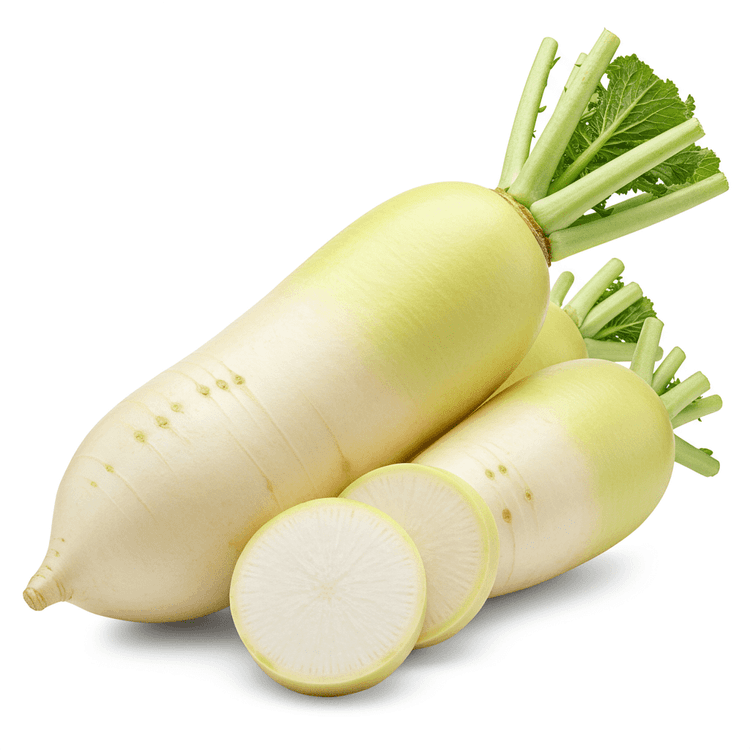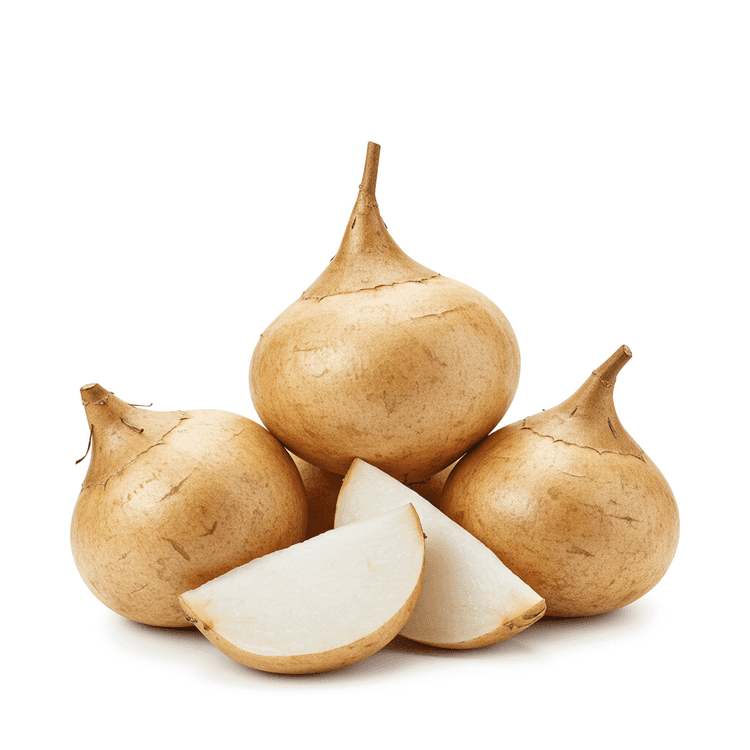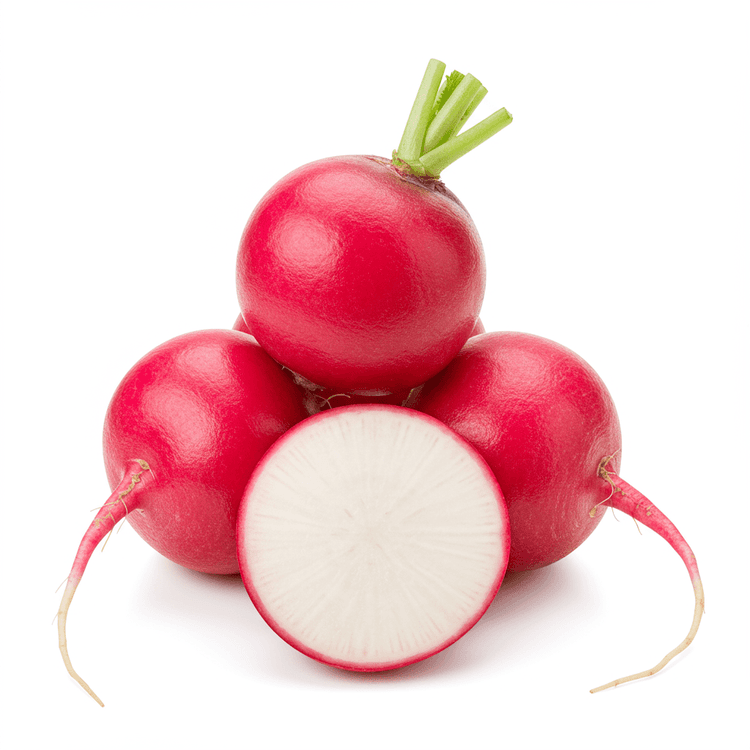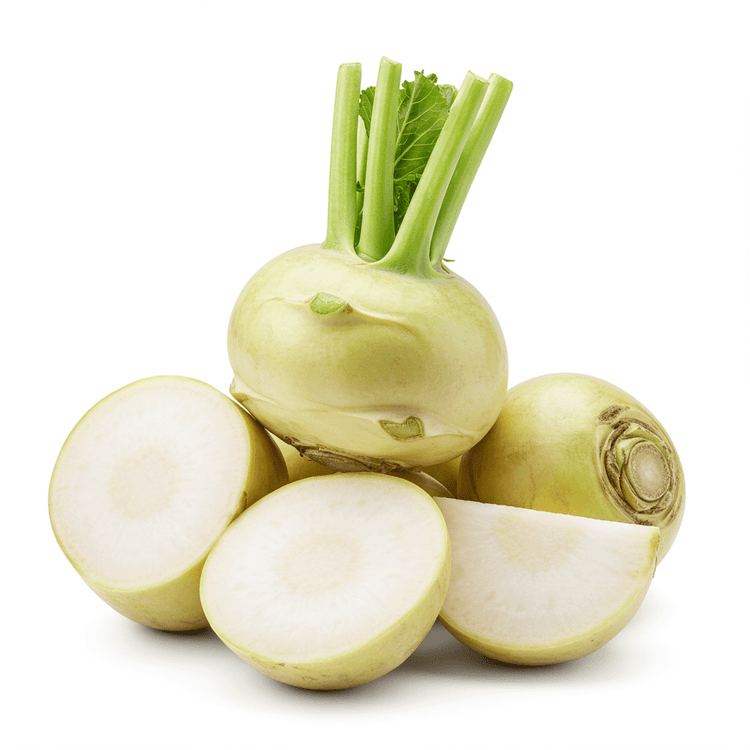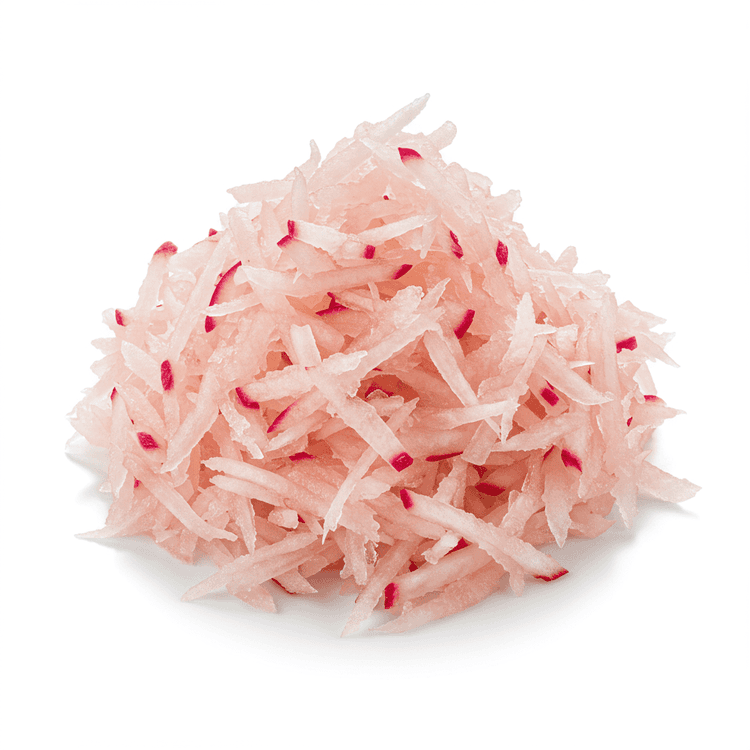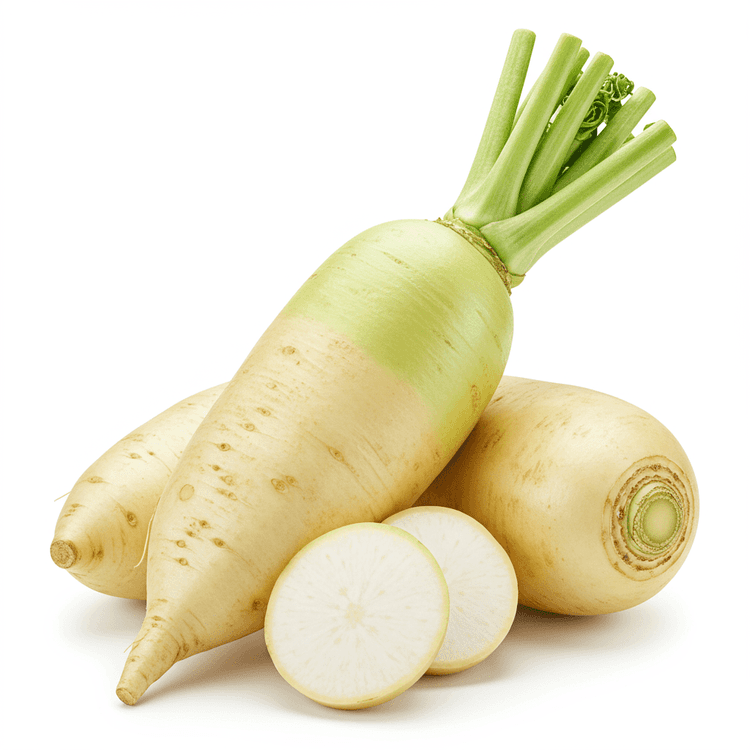
Daikon
Daikon, also known as white radish, is a root vegetable characterized by its crisp texture and mild, slightly peppery flavor. It resembles a large carrot in shape, typically boasting a smooth, white skin and firm flesh. This versatile ingredient is a popular addition to salads, pickles, and cooked dishes alike, providing a refreshing crunch and subtle zest. Discover the many culinary uses of daikon, from adding a vibrant element to raw preparations to lending its unique flavor to stir-fries and soups.
Common Uses
- Daikon radish is often grated or thinly sliced and added to fresh salads for a crisp, refreshing crunch and a subtle peppery flavor that complements other vegetables.- It is a staple ingredient in various pickled preparations, adding a tangy and slightly sweet element when fermented or brined. Pickled daikon makes a great side dish or condiment.- Daikon can be stir-fried with other vegetables and proteins, absorbing the flavors of the dish while retaining its firm texture and adding a mild, radish-like flavor.- This root vegetable is commonly used in simmered dishes and soups, where its mild flavor and tender texture contribute to a comforting and wholesome broth. It softens beautifully when cooked.- Grate daikon and mix it with sauces like ponzu or soy sauce for a delightful condiment served alongside grilled meats, fish, or tofu. It adds a refreshing counterpoint to richer foods.- Daikon is an excellent substitute for other radishes in recipes. It delivers a milder flavor profile for those who find other radishes too strong.
Nutrition (per serving)
Nutrition (per serving)
Calories
61.0kcal (3.05%)
Protein
2.0g (4.08%)
Carbs
14.0g (5.11%)
Sugars
8.0g (16.08%)
Healthy Fat
0.1g
Unhealthy Fat
0.0g
% Daily Value based on a 2000 calorie diet
Nutrition (per serving)
Calories
61.0kcal (3.05%)
Protein
2.0g (4.08%)
Carbs
14.0g (5.11%)
Sugars
8.0g (16.08%)
Healthy Fat
0.1g
Unhealthy Fat
0.0g
% Daily Value based on a 2000 calorie diet
Health Benefits
- Rich in Vitamin C, boosting immunity and acting as an antioxidant.
- Good source of dietary fiber, promoting healthy digestion and regularity.
- Contains enzymes that may aid in the breakdown of complex carbohydrates, improving nutrient absorption.
- Low in calories and carbohydrates, making it a good choice for weight management.
- Provides potassium, which helps regulate blood pressure.
- Contains glucosinolates, compounds that may have anti-cancer properties.
Chefadora AI is here.
Experience smarter, stress-free cooking.
Storage Tips
Daikon radish is best stored in the refrigerator to maintain its crispness and prevent it from drying out. Remove the green tops, as they draw moisture from the root. Wrap the daikon tightly in plastic wrap or store it in an airtight container in the crisper drawer. Properly stored, daikon can last for several weeks in the refrigerator. You can also freeze daikon, but it will lose some of its crispness. Blanch sliced or cubed daikon in boiling water for a few minutes, then cool and freeze in an airtight container.
Marnirni-apinthi Building, Lot Fourteen,
North Terrace, Adelaide, South Australia, 5000
Australia
